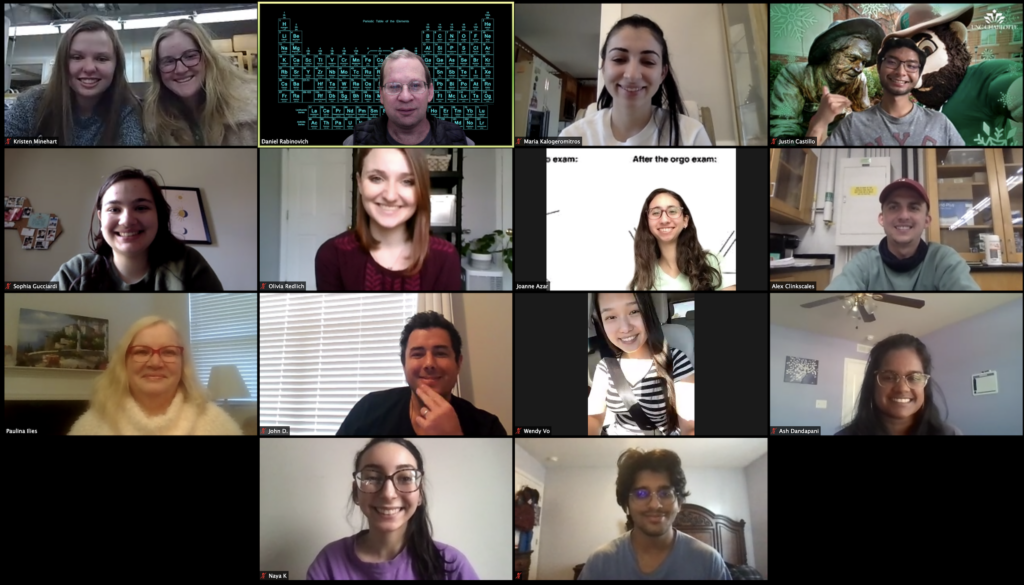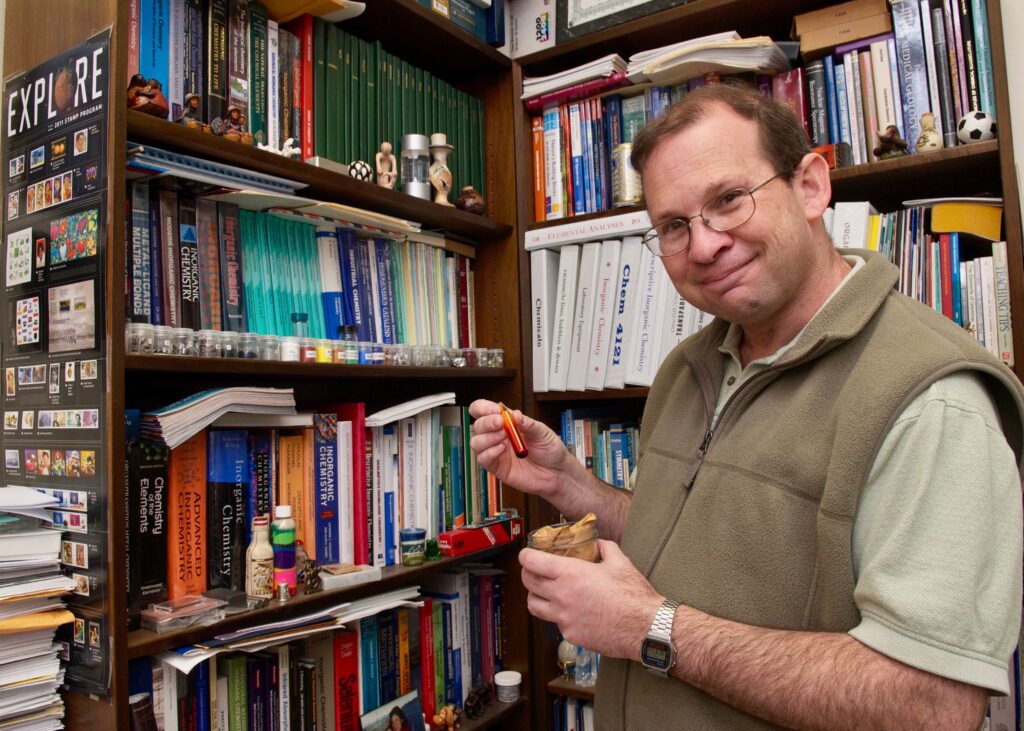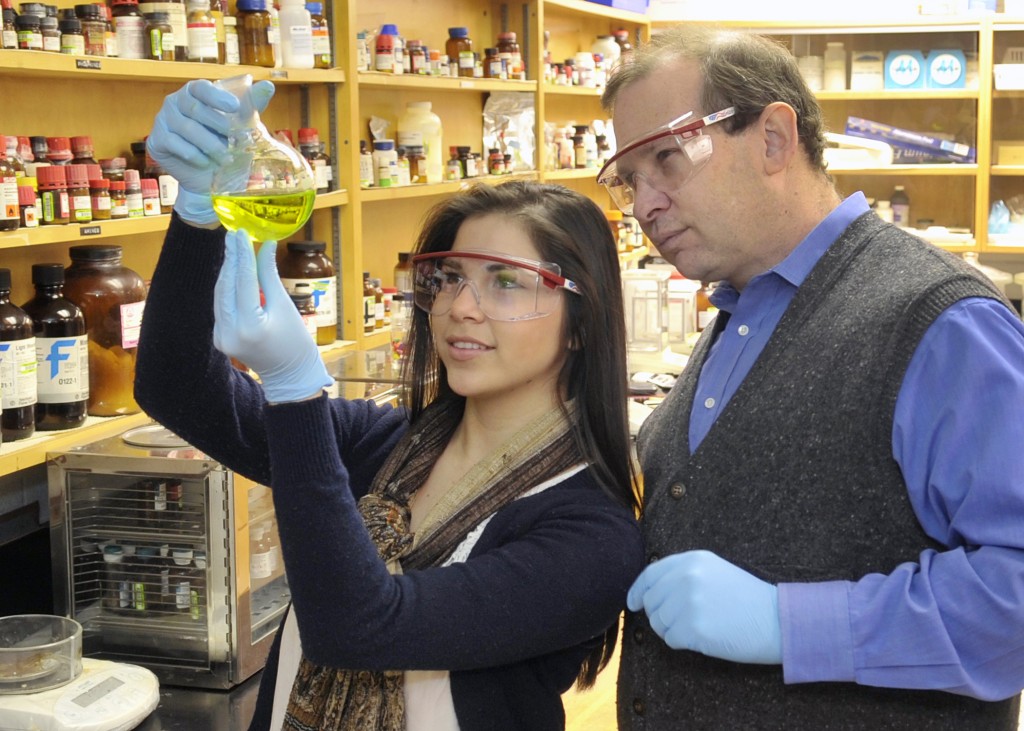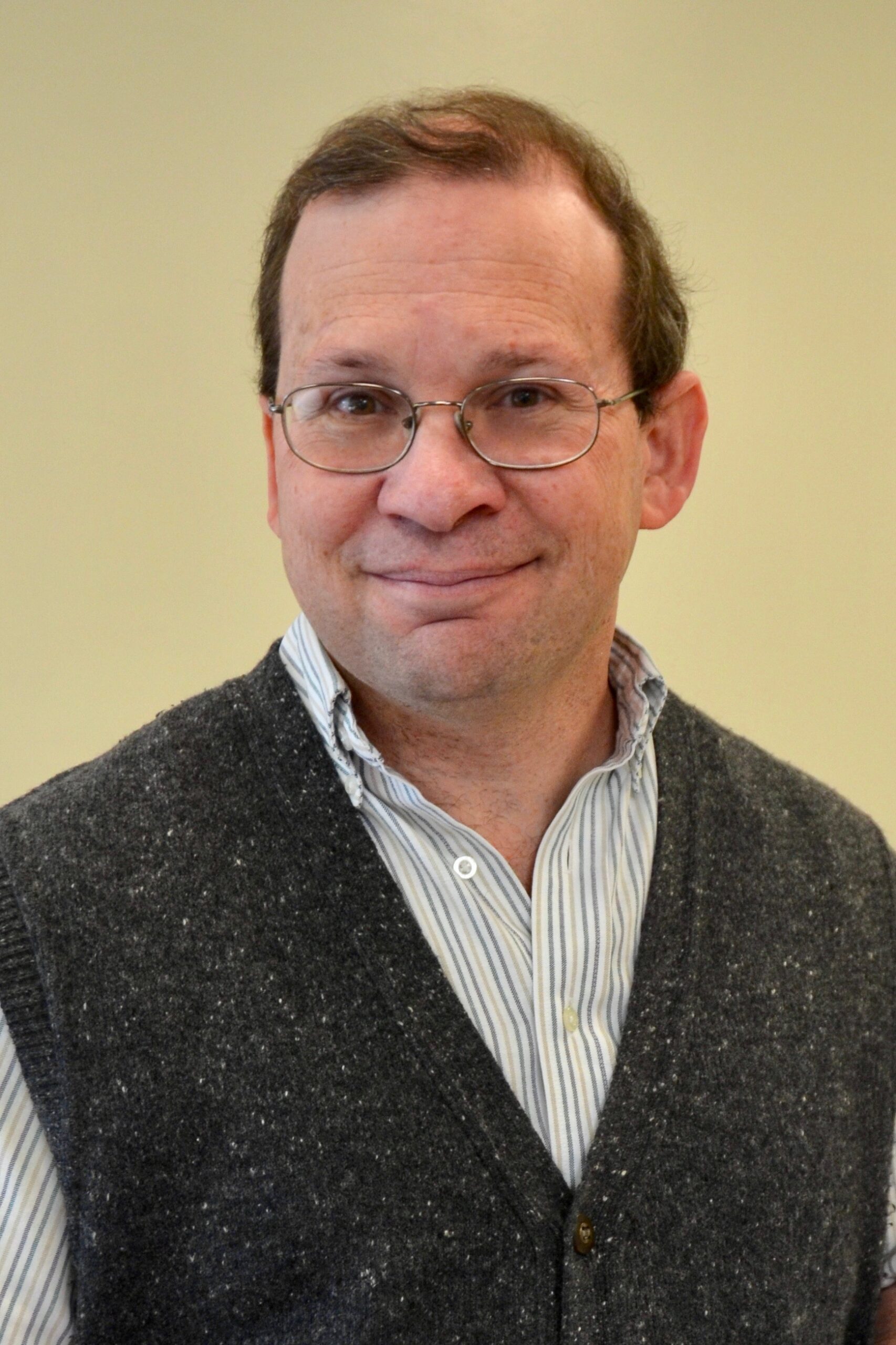In the midst of the COVID-19 pandemic and all its challenges for students, 16 undergraduate scholars have found a supportive research home in Chemistry Professor Dan Rabinovich’s lab group. They are among the 144 undergraduates that Rabinovich has mentored throughout his 25 years at UNC Charlotte.
“I have also mentored several visiting undergraduate students from other institutions – and about 50 high school students – and that brings the “big total” to about 250 undergraduate and high school students advised in research during the past 25 years,” Rabinovich says. “I think it’s worth mentioning that I couldn’t have possibly done it all by myself, and I have tremendously benefited from the help of 33 students who were pursuing master’s degrees and have worked in my lab over the years.”
For these significant – and long-standing – contributions to the professional development of undergraduates, and in honor of his own research, Rabinovich has received the top award presented by the American Chemical Society each year to a researcher who mentors undergraduate scholars in an outstanding manner. Research Corporation for Science Advancement sponsors the award.
“I like the challenge of designing projects that can be carried out by students conducting research on a part-time basis, because they are usually full-time students and have many other obligations,” he says.
“I enjoy helping students develop a variety of universal skills that will serve them well in the future regardless of their career goals, such as communication skills through preparation of posters and oral presentations, critical thinking, and time management.”
— Dan Rabinovich

Colleagues commend Rabinovich for challenging students to conduct innovative research, publish their work in scientific journals, and present their work at conferences.
“I have attended research presentations that many of his undergraduate students have made at regional and national ACS meetings, with more than 240 total student presentations from his research group,” says Gregory J. Grant, Grote Professor Emeritus at the University of Tennessee at Chattanooga. “These presentations have always been excellent, and you can clearly see that Dan has prepared them very well. I have been amazed at the quality of inorganic research that Dan has been able to achieve with his high school students.”

Whether it is to show someone how to use a Schlenk line, analyze the carbon-13 NMR spectrum of a new compound, or discuss an unexpected X-ray structure, it gives him great joy to work with students in the laboratory, Rabinovich says. “When I see a student solve a problem that I considered particularly difficult or carry out an experiment that I thought might not work, I am motivated to push students and myself even further,” he says.
In non-pandemic times, Rabinovich would have joined colleagues in San Antonio, Texas this month for the spring 2021 national ACS conference, where he would have received his award at a black-tie event with what was sure to be thunderous applause. Instead, with the shift to a virtual conference, he delivered an award address via Zoom on Friday, April 9 with the hopes of an in-person ceremony in the fall.
In his usual fashion, rather than show disappointment about a postponed ceremony, Rabinovich chose to see the silver lining. He is proud that his former students organized a symposium in his honor during the virtual conference. Alison Fout ’04, who earned a master’s degree at UNC Charlotte and is now a professor in the Department of Chemistry at the University of Illinois at Urbana-Champaign, took the lead on the symposium.
“I’m super excited about the symposium because participants ranged from former students to Nobel Laureate Roald Hoffmann,” Rabinovich says. “These are all people who I admire and respect.”

Among the alumni participating in addition to Fout were Lizeth (Hernandez) Mendez ’14, ’16, who earned bachelor’s and master’s degrees at UNC Charlotte and started her work with Rabinovich as a high school student; Sam Kyran ’10, who earned a bachelor’s degree at UNC Charlotte and a Ph.D. from Texas A&M University; and Sophie Whitmeyer, who did research in his lab as a high schooler during the summers of 2014 and 2015 and is now pursuing a Ph.D. degree in chemistry at the University of Chicago.
Rabinovich earned a doctoral degree from Columbia University and a bachelor’s degree from Catholic University in Peru. He was a post-doctoral fellow at Los Alamos National Laboratory, and as a faculty member has been a Fulbright Scholar, an IUPAC Young Observer, a Henry Dreyfus Teacher-Scholar, and recipient of the Stanley C. Israel Award for his efforts to advance diversity in the chemical sciences.
The Camille and Henry Dreyfus Foundation, Research Corporation for Science Advancement, the American Chemical Society’s Petroleum Research Fund, and the National Science Foundation have supported his recent research.
Founded in 1876 and chartered by the U.S. Congress, the ACS is one of the world’s largest scientific organizations with more than 155,000 members in 150 countries.
Words: Lynn Roberson, CLAS Communications Director | Images: Lynn Roberson, Wade Bruton and courtesy of Dan Rabinovich








